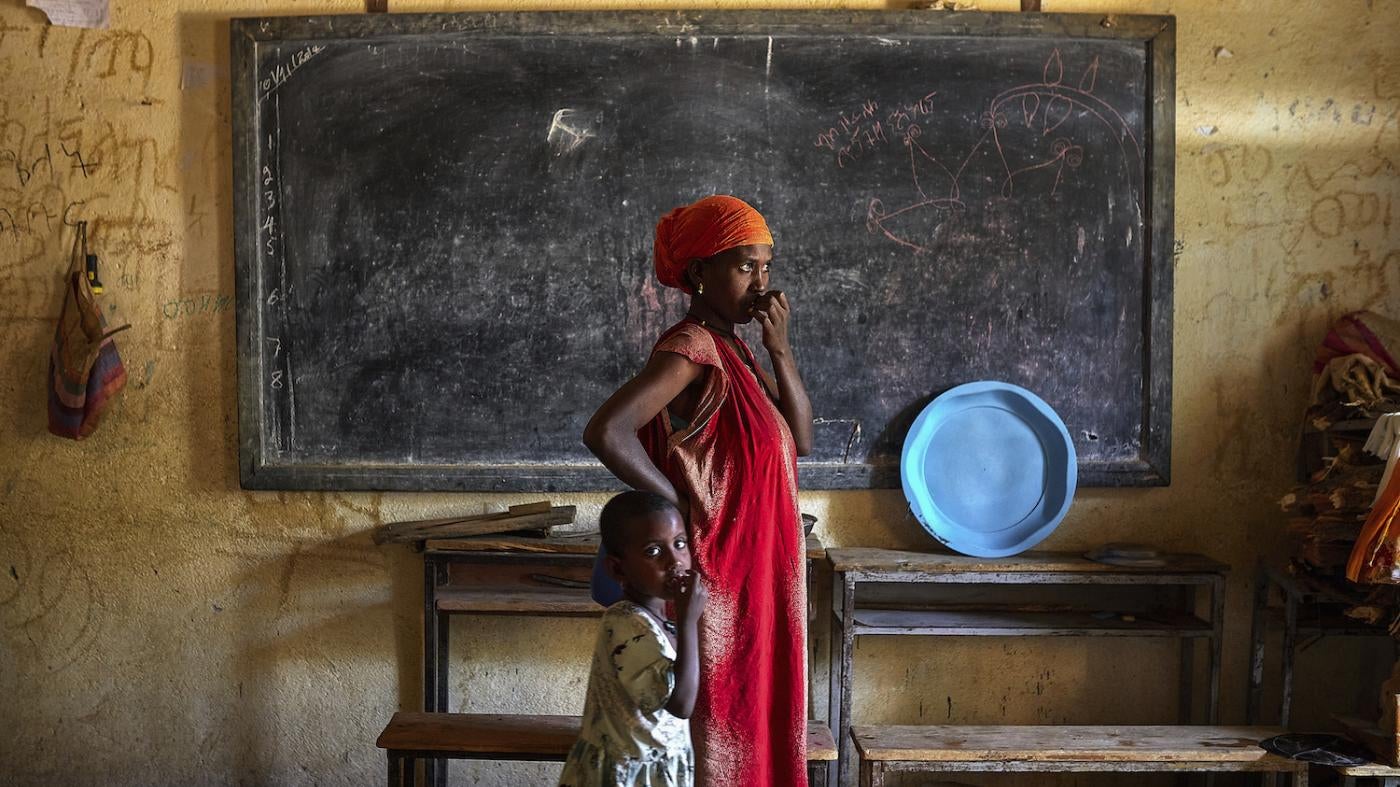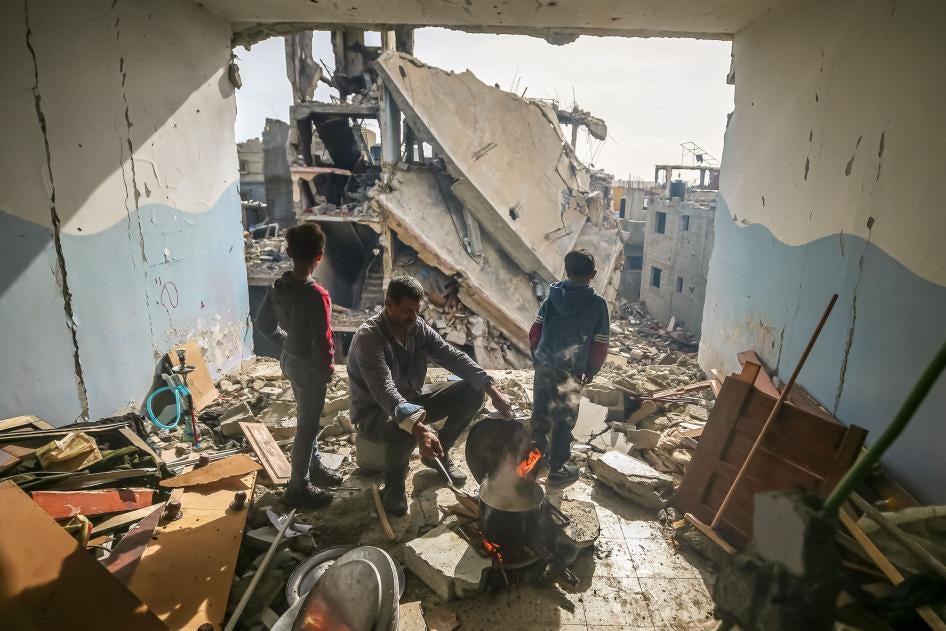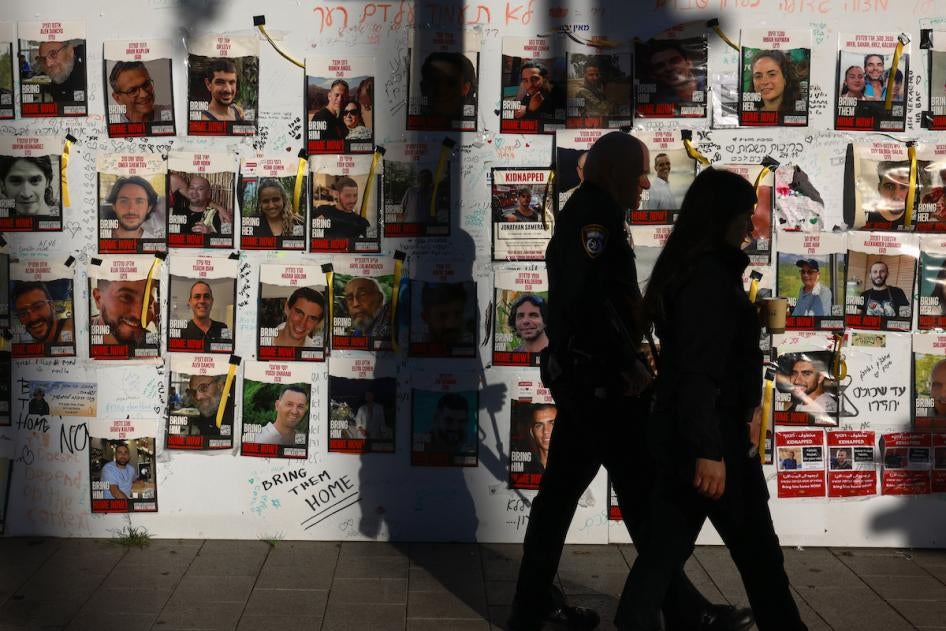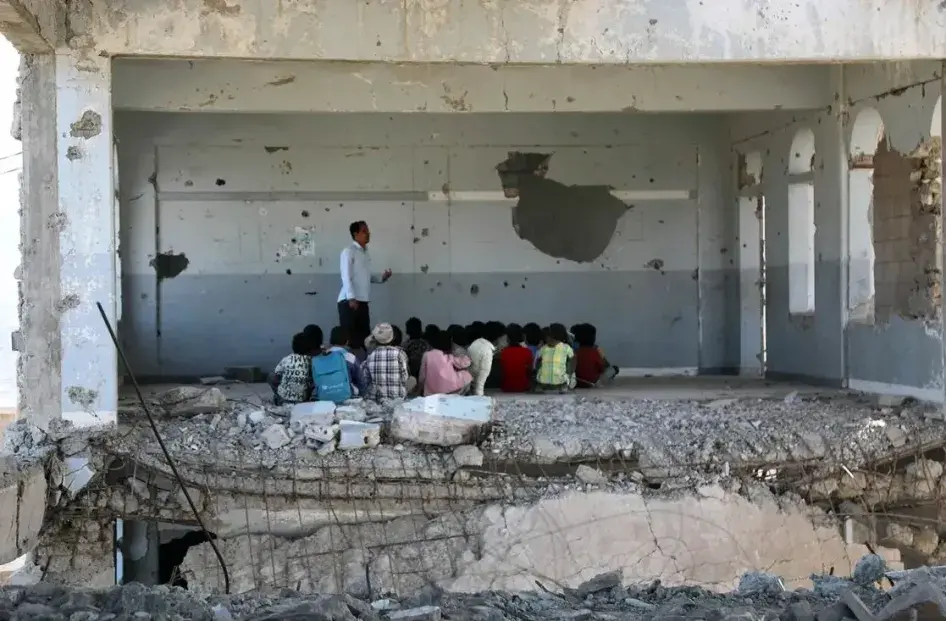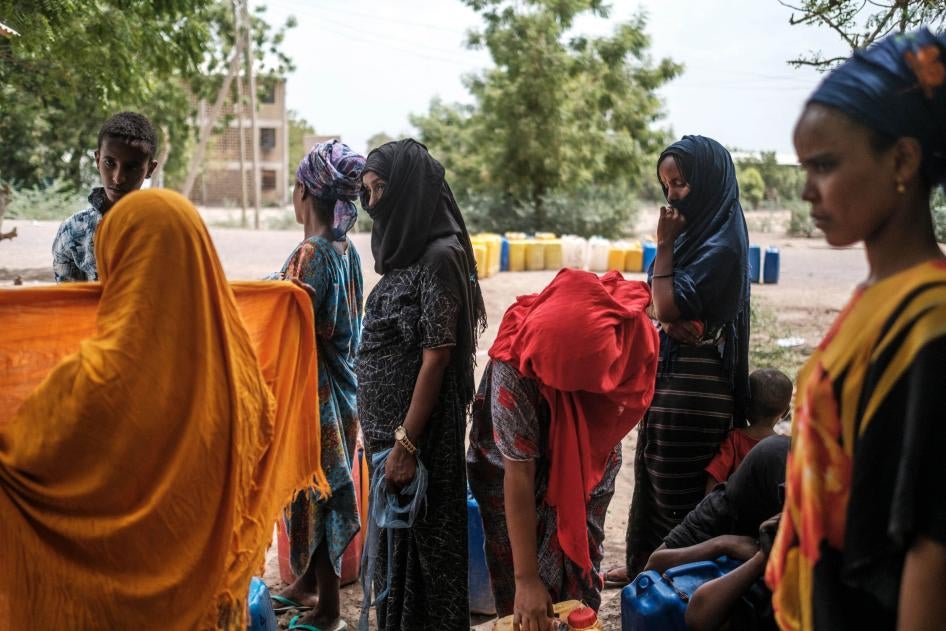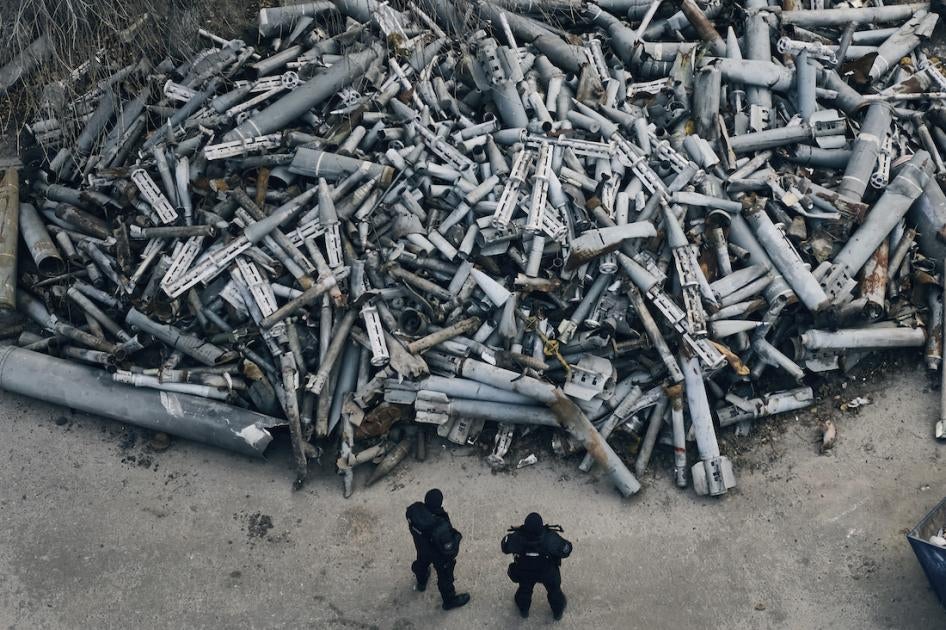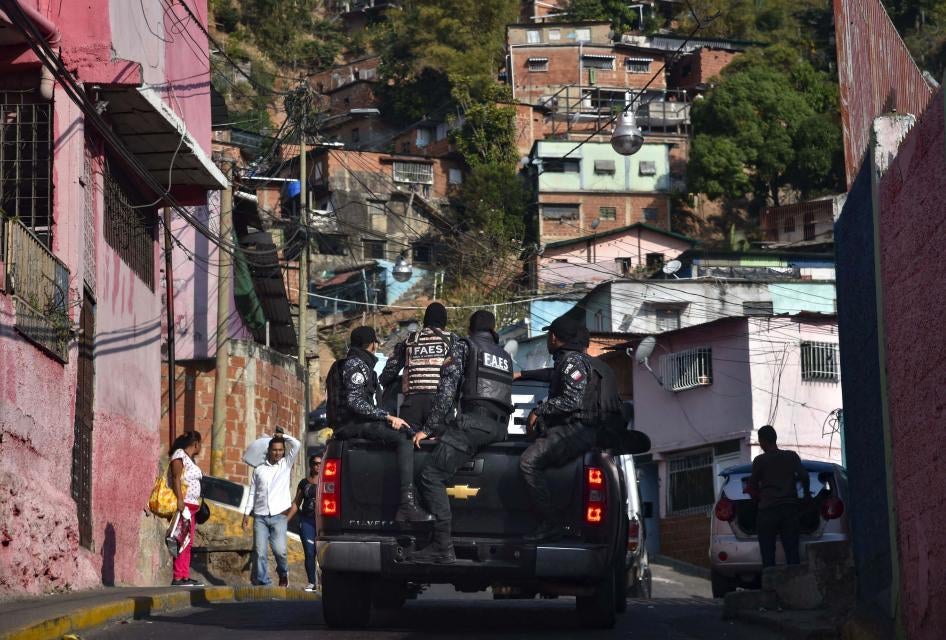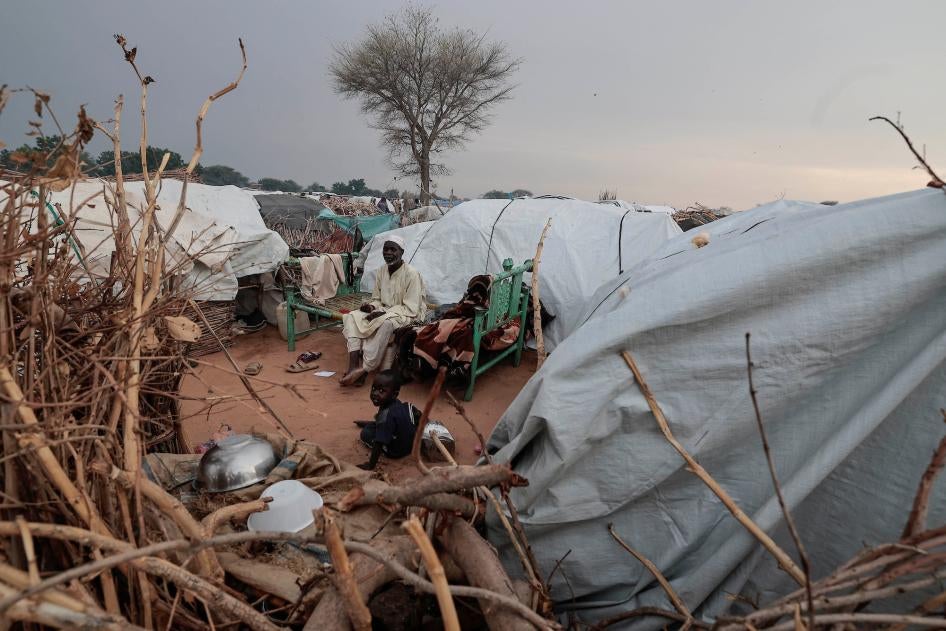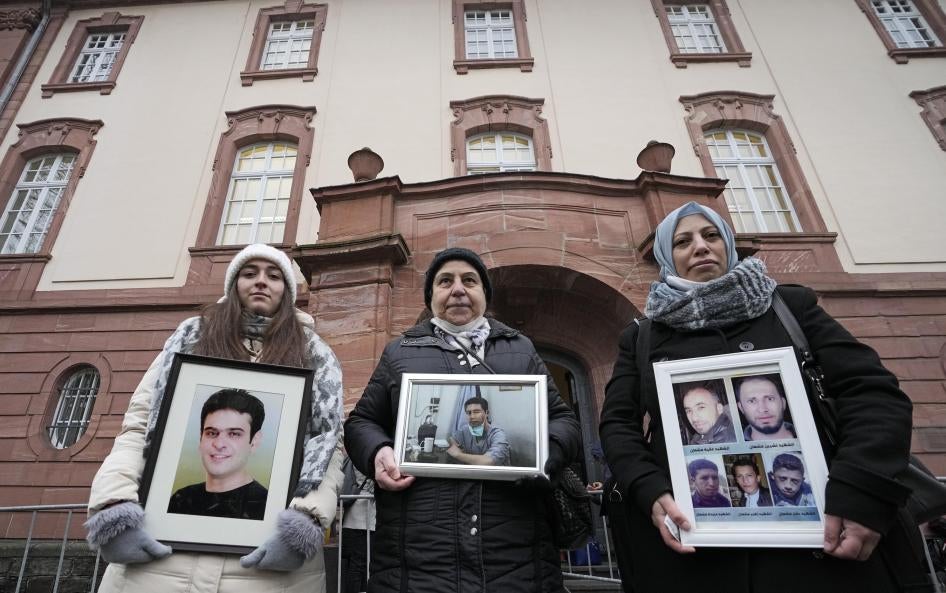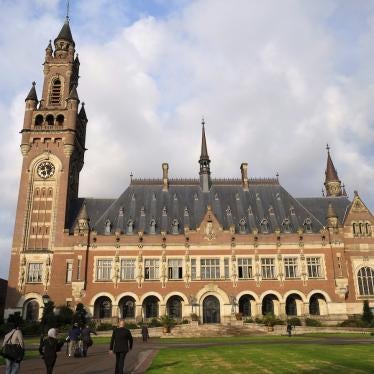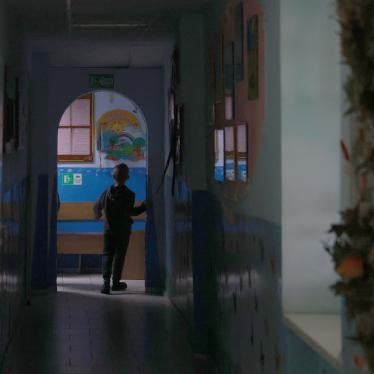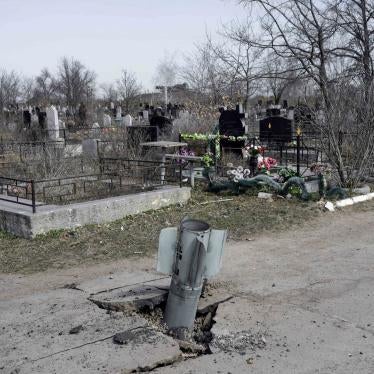We sat down with Human Rights Watch’s Executive Director Tirana Hassan to discuss how the organization – which has been defending human rights since 1978 – operates in times of armed conflict and how teams of people specializing in research, communications, and advocacy work together to compel world leaders to protect civilians and push for justice.
What does Human Rights Watch do when conflict erupts?
We seek to keep civilians safe during fighting by pressing warring parties to respect international humanitarian law, also known as the laws of war, which are the rules that guide and limit warfare. Human Rights Watch’s job is not to say whether war should be waged or not, but to make sure the conduct of warring parties respects the law.
It’s clear what humanitarian organizations do during conflict – they work to get civilians food, water, and shelter, and help those at risk to be protected. What is our role?
We have worked in armed conflicts for decades, from the civil wars in the Americas in the early 1980s to the current hostilities in Israel and Palestine today. We have warned the international community of potential armed conflicts and the risks that violations of the laws of war pose for civilians.
Our researchers document the conduct of the parties to the conflict and any laws they have violated during the fighting. We analyze this evidence and bring it to the warring parties, using our findings to lean on them – or convince governments around the world to lean on them – to change their conduct and protect civilians caught in the middle, as is their legal duty. We also campaign for justice and accountability before national courts and global courts, like the International Criminal Court, when violations amount to war crimes, crimes against humanity, or genocide.
Your answer leads me to another question – can Human Rights Watch’s work prevent conflict before it starts?
Our work can help prevent armed conflict by shining a spotlight on the human rights abuses that are the root cause of so much fighting in the world. When security forces abuse the populations they are meant to protect, when governments repress ethnic, national, or religious groups, when free media or the internet is shut down and when journalists are killed, allowing disinformation to flourish, when weapons flow into places that lack governance. Our research on violations like these, and our advocacy to get governments to change course and respect rights, can help stem tensions that often lead to armed conflict.
What type of laws-of-war violations do we look at?
The laws of war that we use today to protect civilians – also known as the Geneva Conventions of 1949 and its additional protocols – were created in response to the atrocities and inhumanity of World War II. These laws have been adopted by all countries and govern how a war is fought to limit civilian suffering as much as possible.
Warring parties – including national armed forces and non-state armed groups – don’t have carte blanche to do anything they want. They must respect international humanitarian law as well as international human rights law, which remains in effect.
International humanitarian law says that the warring parties are required to distinguish between civilians and combatants when carrying out attacks. Detainees are also protected from mistreatment and torture. The laws make sure civilians have access to food, water, and somewhere safe to live. International humanitarian law also protects essential civilian institutions and services, including hospitals, medical staff, markets, schools, and aid workers delivering life-saving assistance. Taking hostages is a violation, as is recruiting children to fight. Places of worship, such as mosques and churches, and key cultural and historical sites are also protected.
For example, when Taliban forces detained and then summarily executed some members of the former Afghan government’s security forces, that was a serious violation of the laws of war.
We have people with different research specialties across Human Rights Watch. When conflict hits, who does what?
We deploy multidisciplinary teams because conflict affects people in different ways. We have teams of country experts who have been working in and on these situations for a very long time. So, for example, when covering the conflict in Sudan, our Sudan researcher helped gather evidence on the ground and led our efforts to push governments to do more to stop abuses and protect civilians. For the conflict in Ukraine, our researchers specializing both in Ukraine and Russia are essential. The overwhelming majority of abuses are by Russian forces in Ukraine, but some also take place in Russia.
Human Rights Watch also has a Crisis and Conflict division, with researchers who are trained for and have experience working in conflict zones and crisis situations. This year they documented abuses in Sudan, Ukraine, Haiti, and Israel/Palestine.
Armed conflicts also affect different groups of people differently. In Ethiopia’s Tigray region, we documented how Ethiopian and Eritrean military forces, as well as local militias, used sexual violence, including rape, mainly against women and girls. Our Disability Rights Division documented that civilians with disabilities and older people in Gaza were unable to flee the Israeli government’s bombing and faced difficulties accessing necessities and aid under Israel’s blockade. Our health and human rights experts can speak to the health effects of sieges and blockades, which are violations of international law if they are used to deny civilians food and water. Children, we know, are disproportionately affected by conflict, and our colleagues specializing in children’s rights have documented how schools have often been used by warring parties as bases or weapons depots. Our work has led to soldiers vacating schools in Thailand, Somalia, Yemen, the Central African Republic, India, and the Democratic Republic of Congo.
Increasingly in conflict, our researchers can’t get close to where the abuses are happening because it’s unsafe or they are blocked from entering the country. Thanks to our Digital Investigations Lab, we can use technology to corroborate and strengthen our on-the-ground research and eyewitness testimony we’ve been told over the phone or a messaging app. These researchers scrape the internet for open-source evidence from photos and videos that people post on social media. They also conduct digital analyses to confirm that what they find is true, and they triangulate photos or videos depicting abuses with satellite imagery and geospatial analysis to confirm their accuracy.
We used satellite imagery in Myanmar in 2017 to help show the torching of 700 buildings in an ethnic Rohingya village in Rakhine State. The images show large burn scars and destroyed tree cover consistent with widespread destruction, corroborating accounts from refugees who described killing and arson by Burmese military, police and ethnic Rakhine mobs.
Our Arms Division specializes in all-source weapons analysis and treaty compliance monitoring. Among other activities, they conduct field investigations, book-research, and collaborate with technical sources and research teams to identify the specific type of weapons used by analyzing any remnants, impact craters, and other information that munitions leave behind after they are used. The division also monitors and documents when controversial weapons are used, including incendiary weapons like white phosphorous, which leave people with severe thermal burns. We report on new use of cluster munitions and antipersonnel landmines, which are banned internationally because they are inherently indiscriminate against the civilian population.
In addition, the division advocates for stronger international law to better protect civilians from problematic means or methods of warfare in future armed conflicts. And our advocates campaign to stop weapons transfers to armed forces or groups that are likely to use them in violation of the laws of war.
What types of research have we done recently?
We have been documenting unlawful attacks by Israeli forces and Palestinian armed groups in Gaza and Israel. Israeli forces have apparently unlawfully struck hospitals and medical facilities in Gaza and put civilians at risk by using white phosphorus in populated areas. They have also used explosive weapons in densely populated areas on a massive scale. These strikes have caused large-scale destruction and loss of civilian life. In Lebanon, Israeli forces have killed a number of civilians in unlawful attacks amounting to apparent war crimes. We have also documented that Palestinian armed groups have deliberately killed civilians, taken hostages, and launched rockets indiscriminately into Israel’s civilian areas, which are war crimes.
The Israeli government has also cut off basic services, like electricity and water, to the civilian population in Gaza as collective punishment, blocked all but a trickle of aid and food, and used starvation as a weapon of war. These acts amount to war crimes.
We use our research to push for justice. Human Rights Watch was the first human rights organization to publish in-depth research on the issue of forced transfers and deportations of Ukrainians. In March 2023, the International Criminal Court issued arrest warrants against Russia’s President Vladimir Putin and his children’s rights commissioner, Maria Lvova-Belova, for alleged war crimes involving the alleged unlawful deportation and transfer of Ukrainian children from occupied areas of Ukraine to Russia.
How do we get our research in front of key people?
Part of our strategy is through the media and strategic communications. We share our unique research with journalists, who cover our work in the news. We leverage new and sometimes local communications channels to get the information not only to those in power, but also the communities who are affected. Our reports are based on detailed investigations, which are more important than ever in a world rife with disinformation. When the world has forgotten about certain armed conflicts, we work to keep them in the news and on policy makers’ agendas.
We advocate with people who are in positions to make the changes we want to see. For example, if we document an armed group using cluster munitions, we will go to the warring parties and say these are illegal under international law. If we can identify who manufactured and sold these weapons, we can go to those countries, show them our evidence, and tell them they may be complicit in war crimes.
We have also focused on identifying the leaders – like senior commanders in the armed forces – who are responsible for the abuses taking place. Then we can work with governments to implement targeted sanctions or travel bans. For example, we are now pressing the European Union to use sanctions against those responsible for grave violations in the armed conflict in Sudan.
It is our job to hold governments and their leaders accountable when they violate their obligations under international human rights and humanitarian law, no matter how powerful they are. When a military coalition including the United States and United Kingdom invaded Iraq in 2003, we documented their laws of war violations, including indiscriminate airstrikes that killed civilians and the torture of detainees. We also reported on Iraqi violations. Many years later, that work isn’t over. Righting wrongs is usually a marathon, not a sprint.
But it can take time. Human Rights Watch’s documentation of abuses in the former Yugoslavia in the 1990s contributed to the creation of war crimes tribunals and the prosecutions of leaders for war crimes. These trials began in the 2000s and continue in 2023.
When it comes to our advocacy, where are our advocates located and what does their work look like?
Our advocates take our research and engage with people in power to influence the political response to fighting on the ground. Sometimes they are engaging with the warring parties themselves, and sometimes they are urging change among those funding and supporting the warring parties. Our advocates’ goal, in the most general sense, is to make sure human rights are centered in these policy responses.
We advocate with multilateral institutions at the global and regional level, whether it be the United Nations, the African Union, or the European Union, or other local and regional bodies that have responsibilities to protect civilians.
We have a research presence in about 100 countries, and our advocates and researchers can advocate with governments in each of these countries.
We have other advocates based all over the world, including in Tokyo, London, Washington DC, and Johannesburg, and in Australia, Brazil, and across Europe.
Here’s an example of what our advocacy looks like. Starting in 2014, we worked to expose the violent crackdown on dissent by Venezuela’s Nicolás Maduro government, which led to a spiraling humanitarian emergency and the exodus of millions of people. We shared our research at the UN Security Council and pushed for a UN response, and the pressure we helped generate ultimately resulted in more aid reaching people. Our research was cited by the Biden administration to grant temporary protected status to Venezuelans living in the United States, and by the Brazilian refugee agency to grant thousands of Venezuelans legal status.
In short, our research, communications, and advocacy all work together in an incredibly effective way, ensuring that we deploy information in a way that compels those in power to take action.
Who does Human Rights Watch work with during conflict?
Our advocates and researchers work closely with partners – local human rights and other civil society groups, like humanitarian organizations, labor unions, and faith communities.
For example, after armed conflict broke out in Sudan in April 2023, we knew we needed more power behind documenting – and preserving evidence of – the atrocities. Sustained advocacy by Human Rights Watch, combined with the power of the voices of Sudanese and regional partner organizations across Africa, helped lead the UN Human Rights Council to establish an independent international fact-finding mission for Sudan.
What are the challenges you face? Today we see a number of conflicts raging where one side or the other – or both – shows little respect for these laws.
I know some people can be skeptical of whether international humanitarian law and human rights law helps while a conflict rages. There are armed conflicts where the warring parties don’t seem to be showing any restraint – they seemingly flout these laws without consequence.
We’ve seen this in the Horn of Africa since 2020. Government forces and allied militias in Ethiopia’s Tigray region have used rape as a weapon of war and destroyed infrastructure critical to civilians’ survival. They also had cut off the region from food, power, and communications for almost two years. This year, in neighboring Sudan, war has broken out – despite consistent warnings about escalating abuses by the country’s notorious security forces. Eight months later, we’ve documented ethnically motivated attacks on civilians in Darfur, how explosive weapons repeatedly used in urban areas have killed civilians and damaged critical infrastructure in the capital, Khartoum, and widespread obstruction of aid.
In both countries, perpetrators of the crimes have faced very few consequences. In Ethiopia, after warring parties signed a cessation of hostilities agreement, international investigations into conflict-related atrocities were jettisoned as Ethiopia’s international and regional partners sought to normalize relations with the federal government. In Sudan, despite investigative efforts, accountability for crimes is just not being made a priority in political discussions.
That doesn’t mean we give up. And the laws of war do matter, as they give us a framework to render meaningful judgments against combatants, affording victims and their families a measure of justice.
Also, we know that when the laws of war are enforced, including through trials, they can help prevent atrocities by breaking cycles of violence and impunity. Our research shows that, all too often, when justice is scrapped to protect the powerful, these crimes just recur, creating new generations of victims. We’ve seen this in Afghanistan, when warlords granted themselves immunity, and when the International Criminal Court downgraded investigating US abuses in its investigation of alleged war crimes. We’ve also seen this in the Democratic Republic of Congo.
If you want to stop recurring abuses, you need justice. And sometimes justice in a courtroom is a long time coming.
In Syria, Human Rights Watch and many other groups spent years painstakingly documenting human rights violations and war crimes while those responsible were seemingly getting away with murder. Over 10 years on, though, we see that prosecutions for these crimes are gaining steam.
You mentioned that we also campaign for support for justice, including before courts such as the International Criminal Court (ICC).
One of our ultimate goals is justice and accountability for abuses. This includes shaping investigations and pressuring governments to arrest people wanted for serious crimes. We also push for effective war crimes courts, and work to secure financial and political support for accountability efforts. We sustain these campaigns for justice over many, many years. This often starts by making sure our published reports are brought to the attention of the international community and to authorities working before national courts, international courts – including the International Criminal Court – and hybrid courts, which are domestic courts containing international elements.
Human Rights Watch has also advocated for national authorities to put in place the laws and expertise needed to support the practice of “universal jurisdiction,” under which national judicial authorities investigate and prosecute serious crimes committed in other countries, regardless of the nationality of the suspects or their victims. Over the course of 2020-2022, a German court held a trial on state-sponsored torture in Syria, ultimately convicting a former Syrian intelligence officer of crimes against humanity. A Human Rights Watch report documenting torture in Syria’s detention centers was referenced by the court during the trial.
Any last thoughts?
If I could wave a magic wand and stop conflicts around the world and bring people to an understanding, I’d do it. But that’s not reality. This is what we do instead. We document war crimes and other abuses. We make sure the world knows what’s happening, and we push for change. It’s not a perfect system, and sometimes it’s a long road to justice. But Human Rights Watch has done this work for decades, and we know from experience that justice is possible, and we do everything we can to make it probable.
